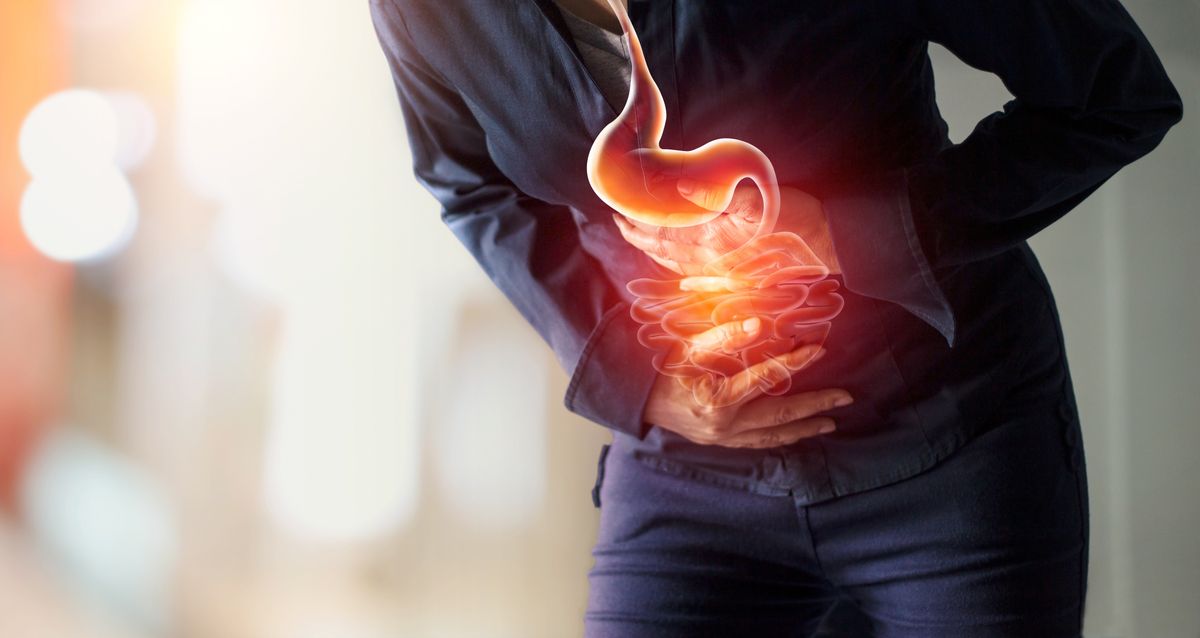While Pepto-Bismol is known for treating digestive symptoms like nausea, heartburn, indigestion, upset stomach, and diarrhea, other drinks can also trigger these discomforts. Some beverages can irritate your digestive tract, affect stomach acid production, dehydrate you, thin the lining of your stomach and intestines, or interfere with hormones. Certain medical conditions may also make you more sensitive to the effects of some drinks. To help you make informed choices, we asked dietitians for their insights on which drinks may disrupt digestion. While some of these drinks can be part of a healthy diet, being aware of their potential impact can help you enjoy them in a more gut-friendly way.
Coffee

While coffee is known to have health benefits and can be part of a balanced diet, it can also have negative effects on your digestion. This is due to the caffeine content in coffee, which can slow down your digestive process by releasing stress hormones like cortisol, adrenaline, and norepinephrine. These hormones can increase your heart rate and energy levels, redirecting blood flow away from your intestines and impacting the normal pace of digestion.
Furthermore, studies suggest that coffee can overstimulate the production of stomach acid, leading to acid reflux and heartburn, particularly when consumed on an empty stomach. Additionally, some individuals with diarrhea-prone irritable bowel syndrome (IBS) may be sensitive to coffee's laxative effect.
If you experience digestive issues or have a medical condition affecting your digestion, it's important to speak with a healthcare provider about the potential impact of coffee and other caffeinated beverages on your health. While coffee can be enjoyed as part of a balanced diet, it's important to be mindful of its effects on your body and make adjustments as necessary.
Alcohol
If you've ever experienced the discomfort of being overserved or dealing with a hangover, you're likely familiar with the digestive issues that can result from drinking alcohol. But what causes this discomfort?
According to Caroline Thomason, RD, CDCES, alcohol uniquely impacts digestion because it is prioritized by the liver to be detoxified. This means that digestion is put on hold until alcohol is completely processed by the body. This delay in digestion can cause discomfort, bloating, and other digestive issues.
Additionally, consuming large amounts of alcohol regularly can lead to inflammation of the intestines, according to Toby Amidor, MS, RD, CDN, FAND, a nutrition expert and author. This inflammation can lead to further digestive issues and discomfort.
To promote healthy digestion, it's important to be mindful of your alcohol intake and consume in moderation. Additionally, staying hydrated and eating a balanced diet can help support your digestive system and mitigate some of the negative effects of alcohol consumption. If you have concerns about your digestive health, it's important to speak with a healthcare provider.
Carbonated beverages
Carbonated drinks like sodas and seltzers are often consumed to soothe stomach pain or nausea, but they can also contribute to digestive disruptions. According to Caroline Thomason, RD, CDCES, carbonated beverages may cause bloating or heartburn for some individuals.
While some people find that carbonated water helps their digestion and reduces indigestion, others may experience gas or bloating. Using a straw to drink these beverages can increase the risk of gas and bloating.
If you enjoy carbonated drinks, Thomason recommends considering soda alternatives like OLIPOP. These sodas contain less added sugar than traditional soda and are made with plant fiber and prebiotics, which can benefit digestive health. OLIPOP sodas provide 9 grams of prebiotic fiber per can, which is 32% of the daily recommended value for fiber.
By being mindful of your beverage choices and opting for alternatives that support digestive health, you can help promote a healthy gut and reduce discomfort. It's also important to speak with a healthcare provider if you experience ongoing digestive issues or have a medical condition affecting your digestion.
Energy drinks

Energy drinks are often high in sugar and low in nutritional value, which can negatively affect the gut microbiota, according to Lauren Manaker, MS, RDN, LD, CLEC, a nutrition expert and author. These drinks also provide no fiber, which is important for maintaining digestive health.
Toby Amidor, MS, RD, CDN, FAND, notes that although case studies are not always the strongest evidence, many have linked energy drink consumption to chronic gastritis, a condition where the lining of the stomach is damaged over a long period of time.
Additionally, energy drinks often contain caffeine and artificial sweeteners or sugar alcohols that can impact digestion. Caffeine can have a similar effect on digestion as coffee, while sugar alcohols like maltitol and xylitol cannot be digested by gut bacteria and can cause gas and bloating.
If you enjoy energy drinks or other sugar-free beverages, it's important to check the labels and be mindful of any artificial sweeteners or sugar alcohols they may contain. Opting for natural sources of energy like fruits or vegetables and staying hydrated can also help support digestive health. If you experience ongoing digestive issues, it's important to speak with a healthcare provider.

